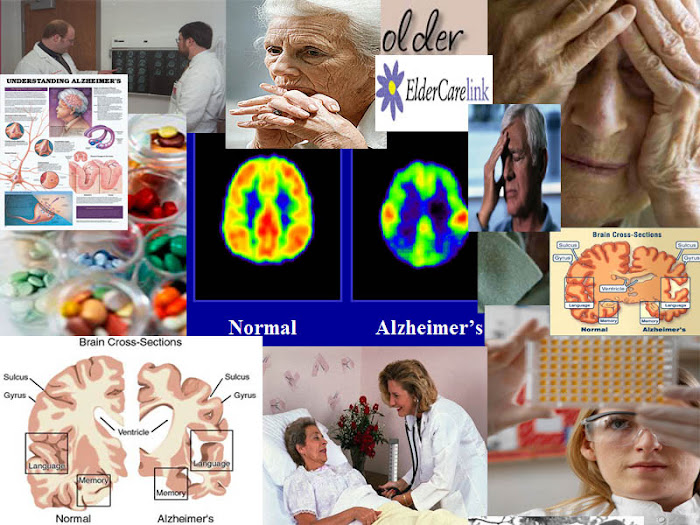- Alzheimer’s disease is a brain disorder named after a physician, Alos Alzheimer who first described it in 1906.
- The first case was discovered in 1901 by Dr. Alzheimer in 51 year old woman named Auguste D.
- Alzheimer’s is fatal and the most common form of Dementia.
- Alzheimer’s is a mixture of dementias, it includes a certain type of dementia that · reduces the amount of blood flowing to certain parts of the brain.
- The most amount of knowledge has been developed in the past 15 years.
- The year 2007 entered the history books as the period of tremendous advancements in Alzheimer‘s research.
- Alzheimer’s is divided into two major symptoms:
-“Cognitive”: symptoms that affect memory language, judgment, planning, ability to pay attention and other thought process.
-“Behavioral & Psychiatric”: affect the way the patients mental abilities and their actions.
Source: http://alzheimers.about.com/od/whatisalzheimer1/a/causes.htm
- Alzheimer’s is thought to be characterized by a buildup of proteins (Plaques & Tangles).
- They block the cells’ ability to communicate with each other, making it difficult for the cell to survive.
- Aging is the number one risk for developing Alzheimer’s.
- One out of eight people over the age of 65 has Alzheimer’s and one out of every two people over the age of 85 has Alzheimer’s.
- The probability of developing and being diagnosed with Alzheimer’s nearly doubles every 5 years after the age of 65.
- People who have a parent or sibling that developed Alzheimer’s disease are two to three times more likely to develop the disease than those that have no history of it in their family.
Source: http://www.alzheimerscombocare.com/?s_cid=1000
- Approximately 5 million American have Alzheimer’s
- Unless a cure or prevention is found, that number will increase to 14 million by 2050.
- People as young as 30 and 40 have developed the disease.
Source: http://www.umm.edu/patiented/articles/what_symptoms_of_alzheimers_disease_000002_5.htm
- alzheimers is often aver looked and diagnosed as natural aging
- alzheimers is often confused with MCI (mild cognitive impairment)
Quotes:
“Scientists are still studying how plaques and tangles are related to Alzheimer’s disease. One theory is that they block nerve cells’ ability to communicate with each other, making it difficult for the cells to survive.”
“Autopsies have shown that most people develop some plaques and tangles as they age, but people with Alzheimer’s develop far more than those who do not develop the disease. Scientists still don’t know why some people develop so many compared to others. However, several risk factors for Alzheimer’s disease have been uncovered.”
Source: http://alzheimers.about.com/od/whatisalzheimer1/a/causes.htm
I only had a maximum of 4 sites because a lot of my sites were supplying me with the same information, so I picked out the four that supplied me with the best and most reliable information.
